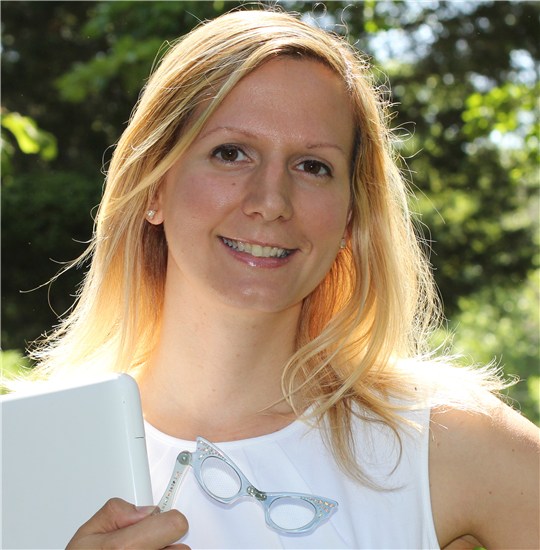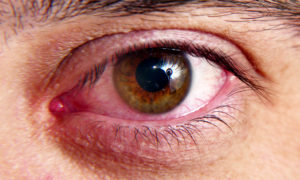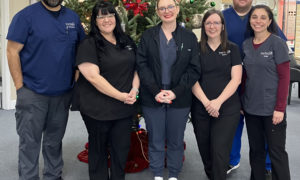By Cheryl G. Murphy, OD

Thanks to the internet, patients are plugged into the latest medical headlines and scientific discoveries now more than ever before, but what happens when the newest scientific findings send the wrong message?
Recently, a headline came across my Twitter feed which made me stop and gasp. It was about multivitamins and new studies that claim that they have little effect on our overall health and well being. As optometrists, we know the difference that the right vitamins can make in a person’s life. Just look to the evidence of the AREDS and AREDS 2 study and you will see the benefits they can have in delaying the progression of early macular degeneration. So why was this study and this article telling people to stop taking their daily multivitamin and that they are wasting their money if they continue to take it?
One of the studies the article cited looked at doctors over the age of 65 who were in overall good health and whom they had been following over the course of many years after having them take multivitamins versus a placebo. It claimed that multivitamin use had very little influence on improving their memories or overall health. It went on to say that the vitamins seemed to lower cancer risk by “only” 8 percent and cataract progression by 9 percent and seemed to question whether or not this was substantial enough to pop the pill everyday.
While I do agree that there is no magic pill to erase poor nutritional habits and an unhealthy lifestyle, I think that the headline associated with these studies may be sending the wrong message. Yes, multivitamins pack a lot of vitamins and nutrients into a small package which is difficult for the body to break down, absorb and use all at once, but stopping vitamin use altogether is not the answer.
Instead, the public should be educated about vitamins and minerals and the differences in how various forms can be most efficiently absorbed. Improving our daily diets can help us to draw the vitamins and minerals we need from the food we eat as some of these vitamins are best broken down and absorbed naturally. A few weeks ago, I spoke with Aleksandra Wianecka, OD, who is passionate about healthy living and nutrition, and she told me that it is not just about what vitamins you take; it is about the quality of the vitamins you take. Not all are built the same and not all are absorbed the same. She also shared that she often discusses “juicing” with her patients. There are plenty of different juicers out on the market today and there are many wonderful juicing recipes to try online. Juicing may be a good way for some people to get more of the vitamins and nutrients they need everyday through the food they eat.
To help our patients, we must stay informed and in touch with the latest scientific news and findings. While these studies were conducted at prestigious and reputable universities, others may not be. Also, sometimes the news articles that sum up studies are written by journalists with little-to-no science or medical background.
When our patients present to us something they have read on the internet we need to be fully prepared to guide them through the sometimes misleading stories that they may come across. We also need to back up our medical advice with sound scientific evidence that comes from trusted sources and from studies that have been successfully repeated with the same results over time.
In the case of the vitamin study, there is a lot to question. Could it be that multivitamin use did not make a difference in the lives of physicians who already know a lot about nutrition and who may have already been taking very good care of themselves? And as far as an 8 percent drop in cancer risk being considered minimal or insignificant, isn’t any decrease in the risk of getting such a devastating disease significant? I’ll take the 8 percent drop, thank you very much.
Instead of focusing on the fact that multivitamin use may be unnecessary, take the wheel and steer the conversation in the right direction–that there is no substitute for eating the right balance of healthy foods and living an active, fit lifestyle. Suggest alternatives to taking a multivitamin such as juicing or recommend the patient visit a nutritionist to construct an individualized combination of meals and vitamins that would most benefit their health. And also remember, the supplements are just that, supplements. They are something we take in addition to, not in place of, our consumption of healthy foods.
How do you keep up with the latest science news and headlines? What strategies do you use to combat misleading information that patients come in with? What trusted sources and web sites do you provide your patients with to give them more information about nutrition and health? Do you often discuss alternatives to multivitamins such as eating a nutritious diet, exercising or juicing?
Cheryl G. Murphy, OD, practices at an independent optometric practice in Holbrook, NY. You can like her on Facebook or follow her on twitter @murphyod. To contact her: murphyc2020@gmail.com.



























